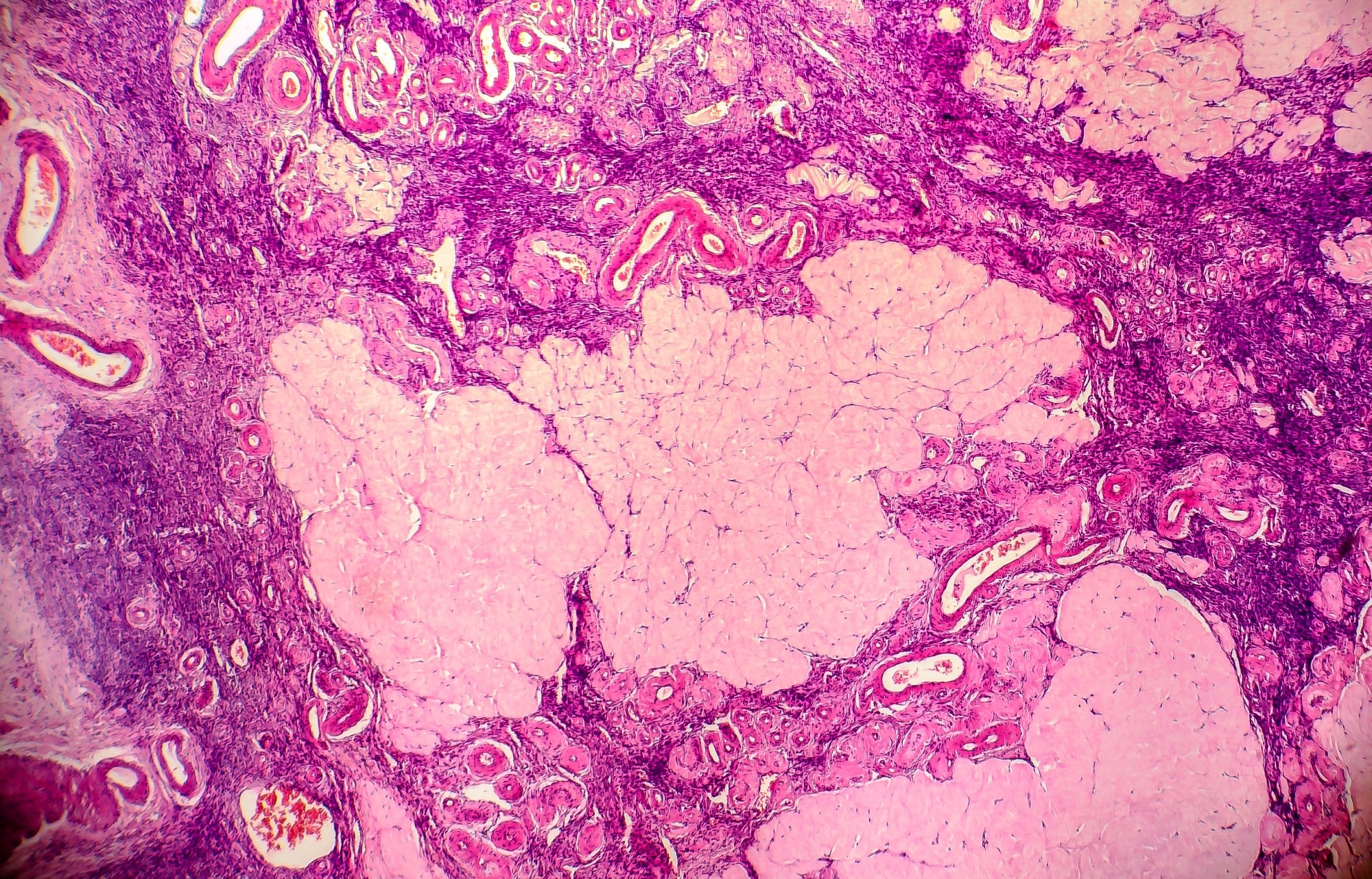Recent advances in artificial intelligence (AI) are now poised to revolutionize the diagnostic procedures for sarcomas, a rare cancer type. Innovative research from The Royal Marsden NHS Foundation Trust and The Institute of Cancer Research, London, reveals that AI algorithms can potentially outperform traditional biopsy methods in determining the aggressiveness of certain sarcomas.

Image Credit: Kateryna Kon/Shutterstock.com
Commercial industries, particularly the healthcare technology sector, might find this advancement highly beneficial. By integrating rapid, non-invasive diagnostic tools like this into healthcare systems, costs can be reduced, and the quality of patient care can be enhanced.
According to the study featured in The Lancet Oncology, the newly developed AI algorithm demonstrates twice the accuracy of conventional biopsy in grading some sarcomas' aggressiveness. Notably, biopsies, albeit standard, are invasive and might not always provide an entirely accurate picture. This innovation not only augments the diagnosis speed of specific subtypes of the disease but also offers tailored treatment options based on the disease's severity and subtype.
Soft tissue sarcoma manifests in the body's connective tissues, such as fat, muscles, and blood vessels. It is a comparatively rare condition, with approximately 4,295 new cases annually in England, encompassing over 50 distinct variants. The focal point of this study is the retroperitoneal sarcoma, which, given its location in the back of the abdomen, is particularly challenging to diagnose and treat.
The AI Algorithm
The AI-centric research approach utilized the CT scans of 170 patients diagnosed with the two prevalent forms of retroperitoneal sarcoma, namely leiomyosarcoma and liposarcoma. Leveraging a technique termed 'radiomics,' the team extracted intricate patient disease data from these images, including information often imperceptible to the human gaze.
Remarkably, this AI model successfully graded the aggressiveness of 82% of the analyzed tumors, a stark contrast to the 44% accuracy rate of biopsies. Additionally, the algorithm demonstrated an impressive 84% accuracy in diagnosing the disease type. Such high precision could empower clinicians to optimize treatment strategies, ensuring that high-risk patients receive intensified care and sparing low-risk patients from undue treatments and frequent hospital visits.
From a commercial perspective, implementing such AI-driven tools could significantly reduce diagnosis-related costs. Additionally, early and accurate detection can potentially lead to better treatment outcomes, thus minimizing treatment-related expenses. Given that the disease's rarity might mean some clinicians encounter only a few cases throughout their careers, this technology can bridge the experience gap, ensuring standardized, accurate, and rapid diagnosis.
This groundbreaking study received funding from renowned institutions like the Wellcome Trust, the EORTC Soft Tissue and Bone Sarcoma Group, the National Institute for Health and Care Research (NIHR) Biomedical Research Centre, The Royal Marsden, and the ICR, along with support from The Royal Marsden Cancer Charity.
The Transformative Potential of AI in Healthcare
Dr. Amani Arthur, Clinical Research Fellow at The Institute of Cancer Research, London, highlighted the pressing need for improved diagnostic and treatment modalities for patients with retroperitoneal sarcoma. She emphasized the transformative potential of the AI tool, stating its potential to "improve patient outcomes by helping to speed up the diagnosis of the disease and better tailor treatment."
Moreover, Professor Christina Messiou, Consultant Radiologist at The Royal Marsden NHS Foundation Trust, underscored the collaborative nature of this effort. She expressed optimism about the technology's potential to transform sarcoma diagnosis on a global scale and its adaptability to other cancer types.
This kind of technology has the potential to transform the lives of people with sarcoma – enabling personalised treatment plans tailored to the specific biology of their cancer. It's great to see such promising findings.
Dr. Paul Huang, Group Leader in Molecular and Systems Oncology at The Institute of Cancer Research, London
In summary, the rise of AI-driven diagnostic tools offers a promising horizon for the healthcare industry. Their potential integration into commercial health systems signifies a new era of efficient, precise, and cost-effective patient care.
References and Further Reading
- Ai twice as accurate as a biopsy at grading aggressiveness of some sarcomas (no date) The Institute of Cancer Research. Available at: https://www.icr.ac.uk/news-archive/ai-twice-as-accurate-as-a-biopsy-at-grading-aggressiveness-of-some-sarcomas (Accessed: 01 November 2023).
- Walsh, F. (2023) Scientists excited by AI tool that grades severity of rare cancer, BBC News. Available at: https://www.bbc.co.uk/news/health-67264350 (Accessed: 01 November 2023).
- Arthur, A. et al. (2023) ‘A CT-based radiomics classification model for the prediction of histological type and tumour grade in retroperitoneal sarcoma (RADSARC-R): A retrospective multicohort analysis’, The Lancet Oncology, 24(11), pp. 1277–1286. Available at: https://www.thelancet.com/journals/lanonc/article/PIIS1470-2045(23)00462-X/fulltext.